- Home
- About us
- Press Releases
- Projects
- SIIM
- Security Incident Information Management (SIIM) (EN)
- Security Incident Information Management (SIIM) FR
- Security Incident Information Management (SIIM) (ES)
- Security Incident Information Management (SIIM) AR
- SIIM in NGO Security Collaboration
- Toolkit: Evidence that Protects Health Care
- Support for Advocacy
- Mobile Guides and Podcasts
- Mobile guides on security
- Research partnership
- Concept development
- Information
- Country Pages
Ethiopia
Aid-sector tailored predictive situation analysis on Ethiopia to support aid agencies’ strategic security decision-making.
Two women raped in Amhara region
13 January 2024: In Mankusa town, Jabi Tehnan Woreda, West Gojjam zone, Amhara region, two women were raped by Ethiopian National Defense Force (ENDF) soldiers. Source: Personal Communication. Return to Ethiopia home page. more
Previous stories:
Threats & Violence
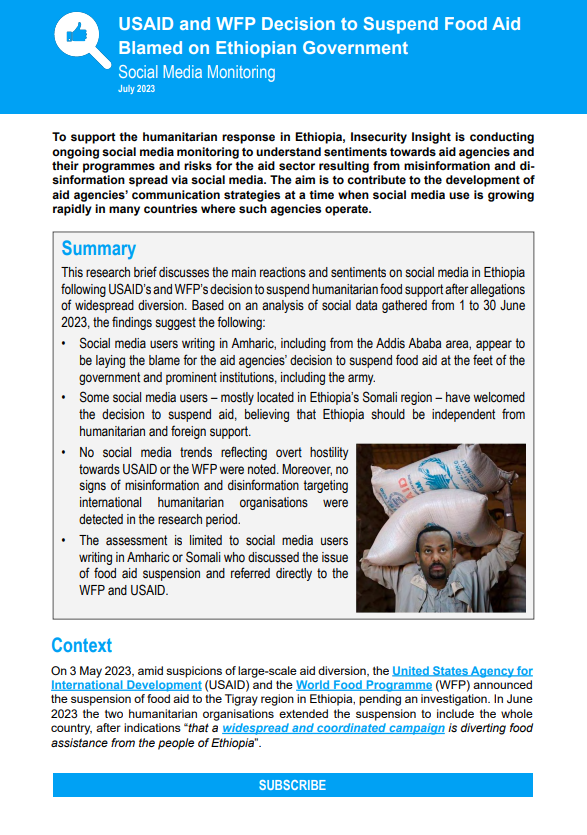
USAID and WFP Suspension Blamed on Ethiopian Gov
July 2023 Social Media Monitoring
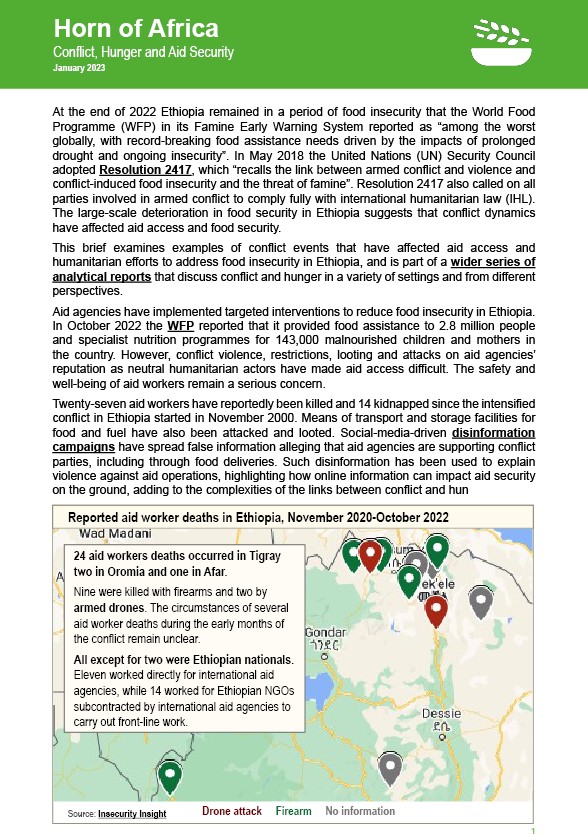
FIVC-Ethiopia
December 2022
Conflict, Hunger and Access
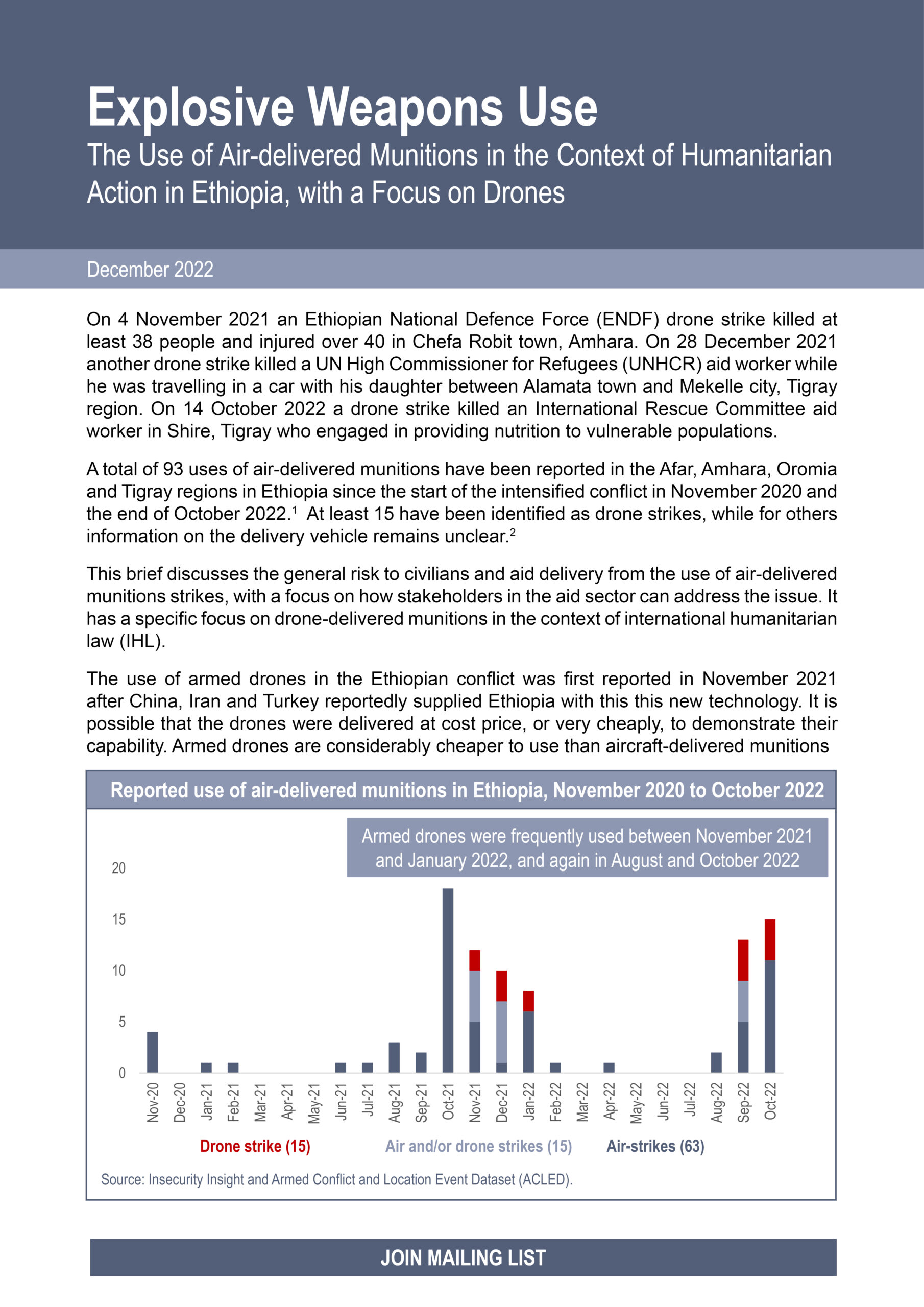
Ethiopia
December 2022
Explosives Weapons - Drones
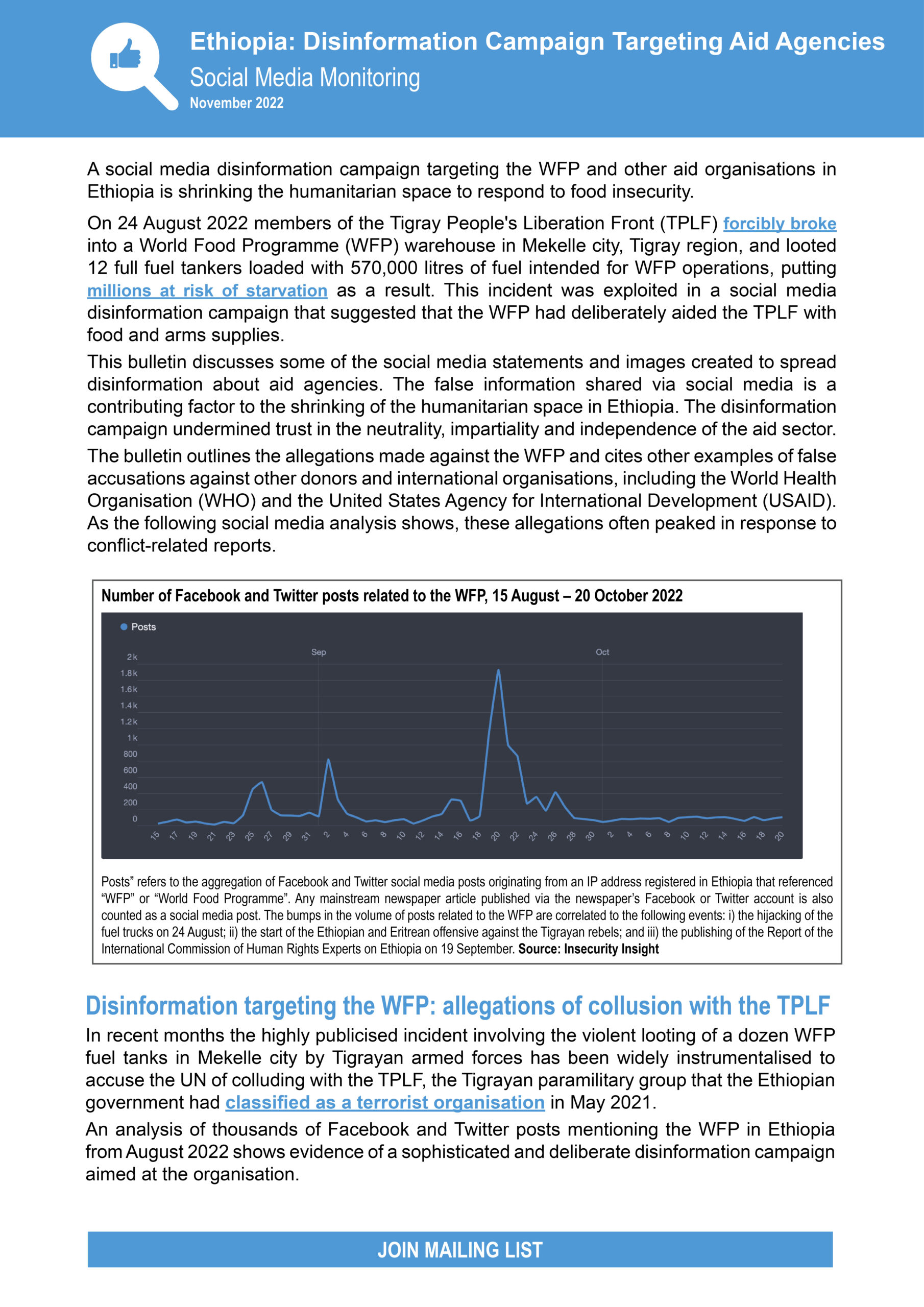
Ethiopia – Disinformation targeting WFP
November 2022
Social Media Monitoring
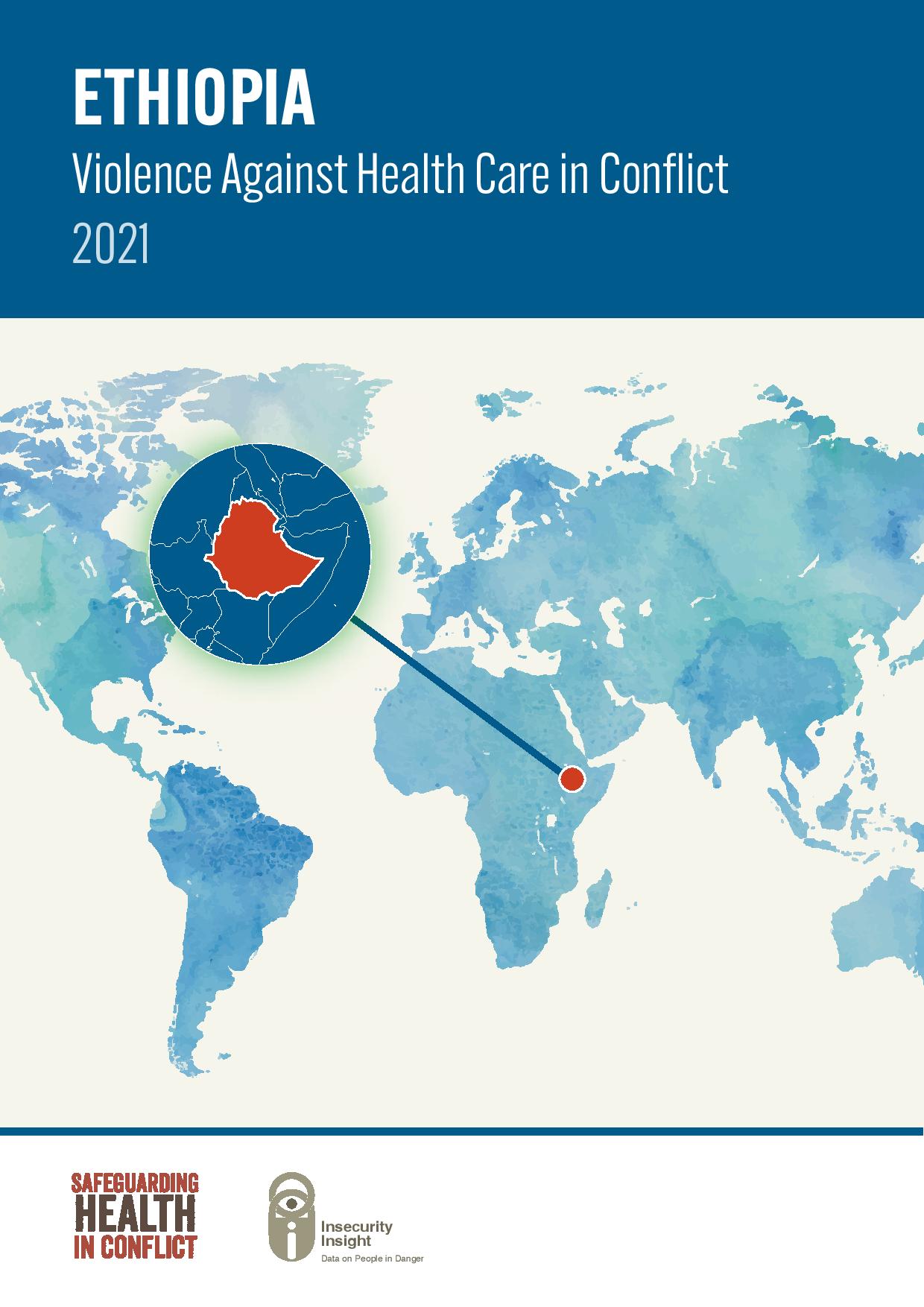
Ethiopia
May 2022
2021 SHCC Factsheet
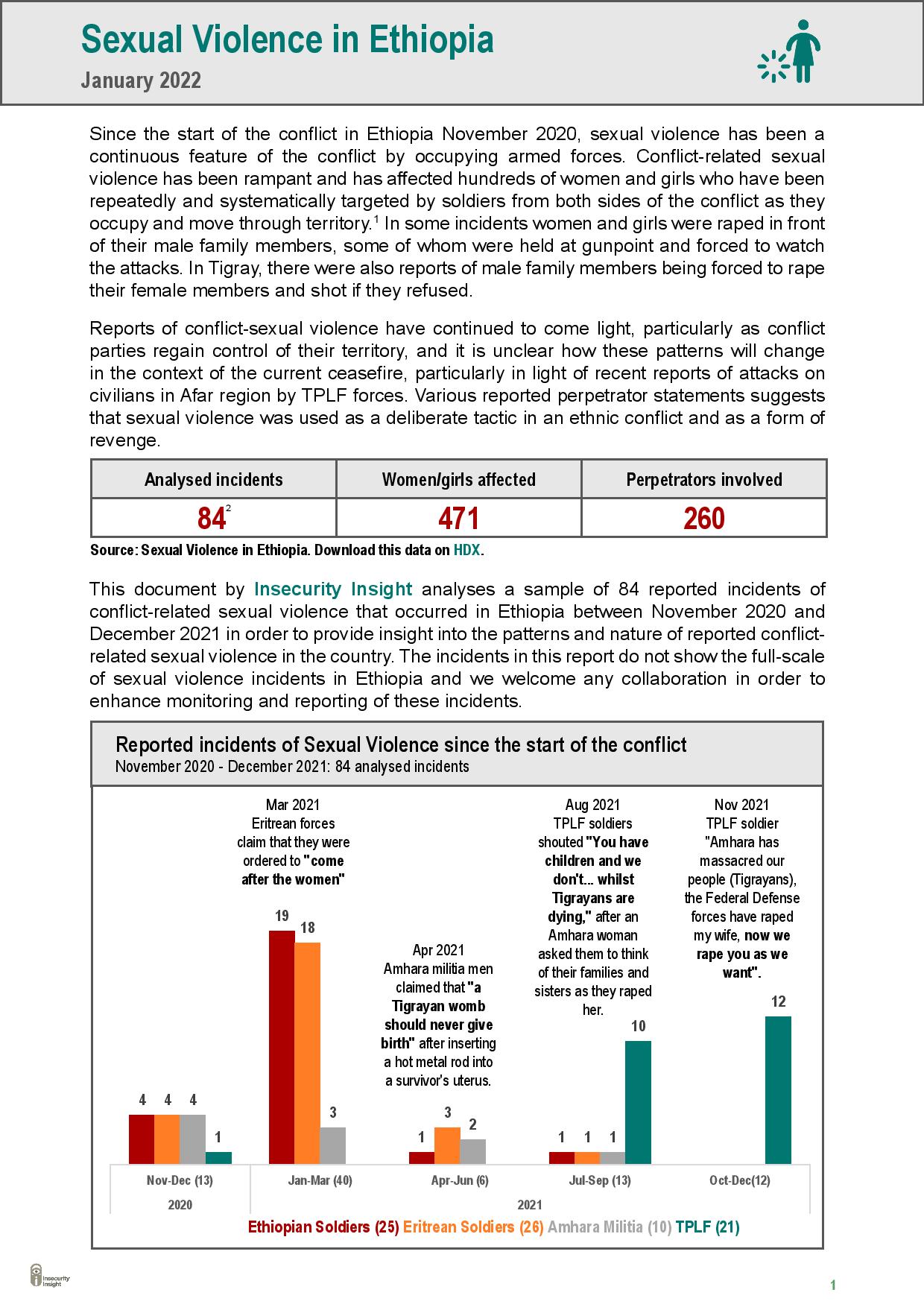
Ethiopia
28 January 2022
Sexual Violence in Conflict
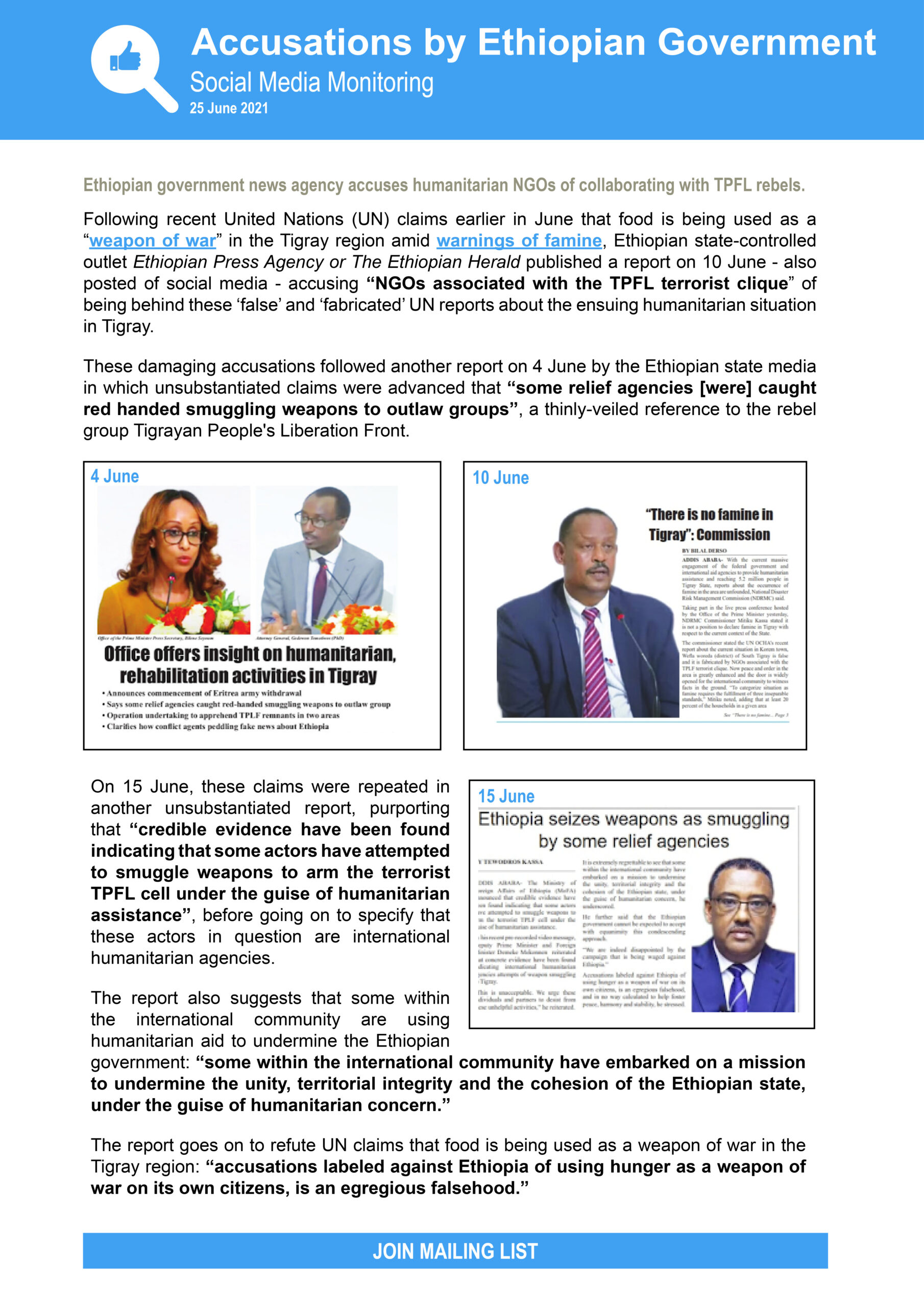
Accusations by Ethiopian Gov
25 June 2021
Social Media Monitoring
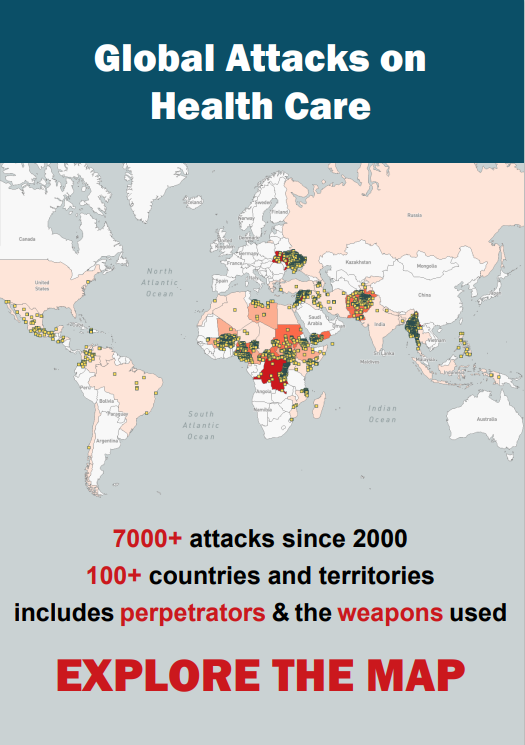
Global Health Map
Attacks on Health Care
Since 2000
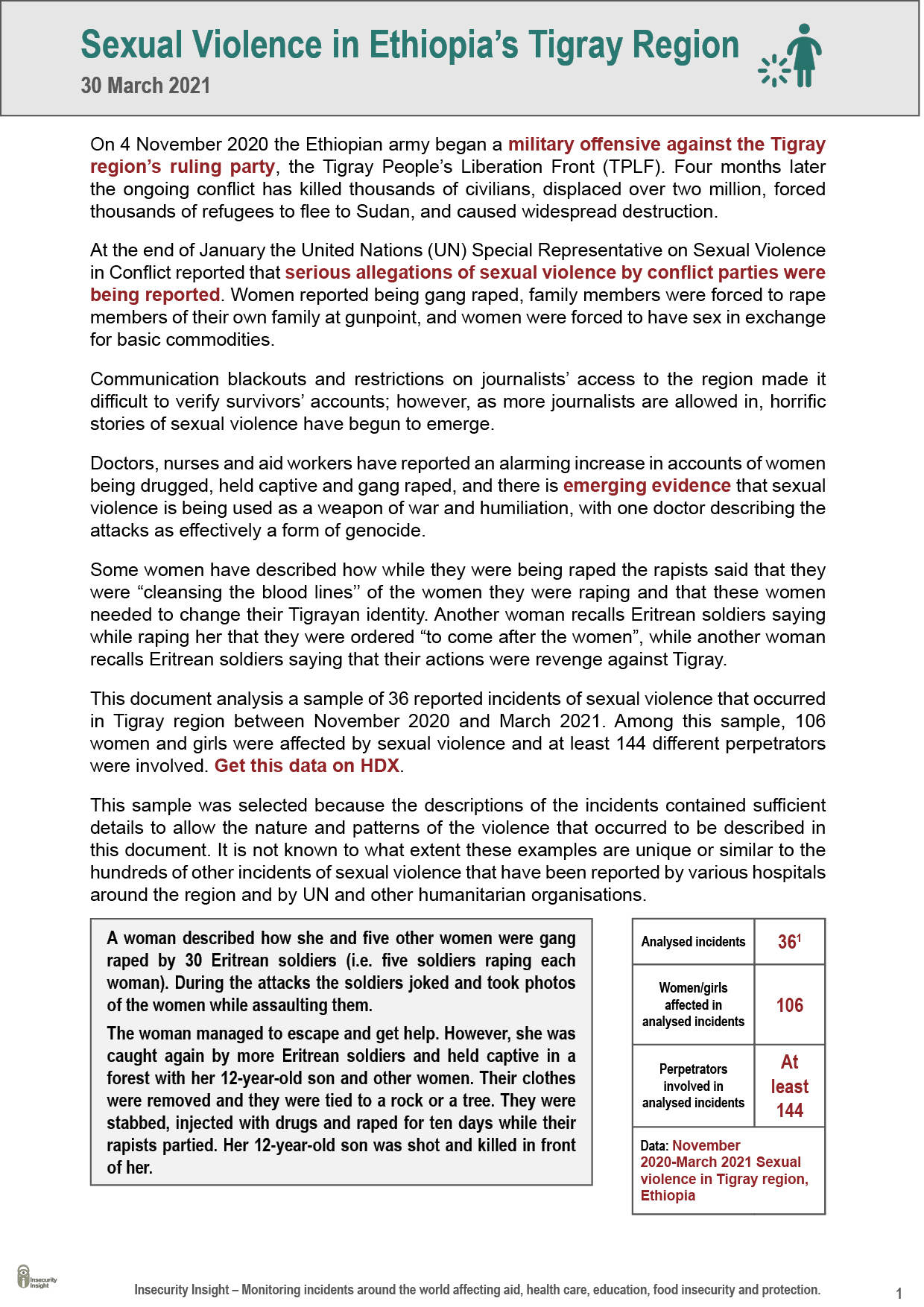
Sexual Violence in Tigray
30 March 2021
Reporting Sexual Violence
Predictions & Mitigations
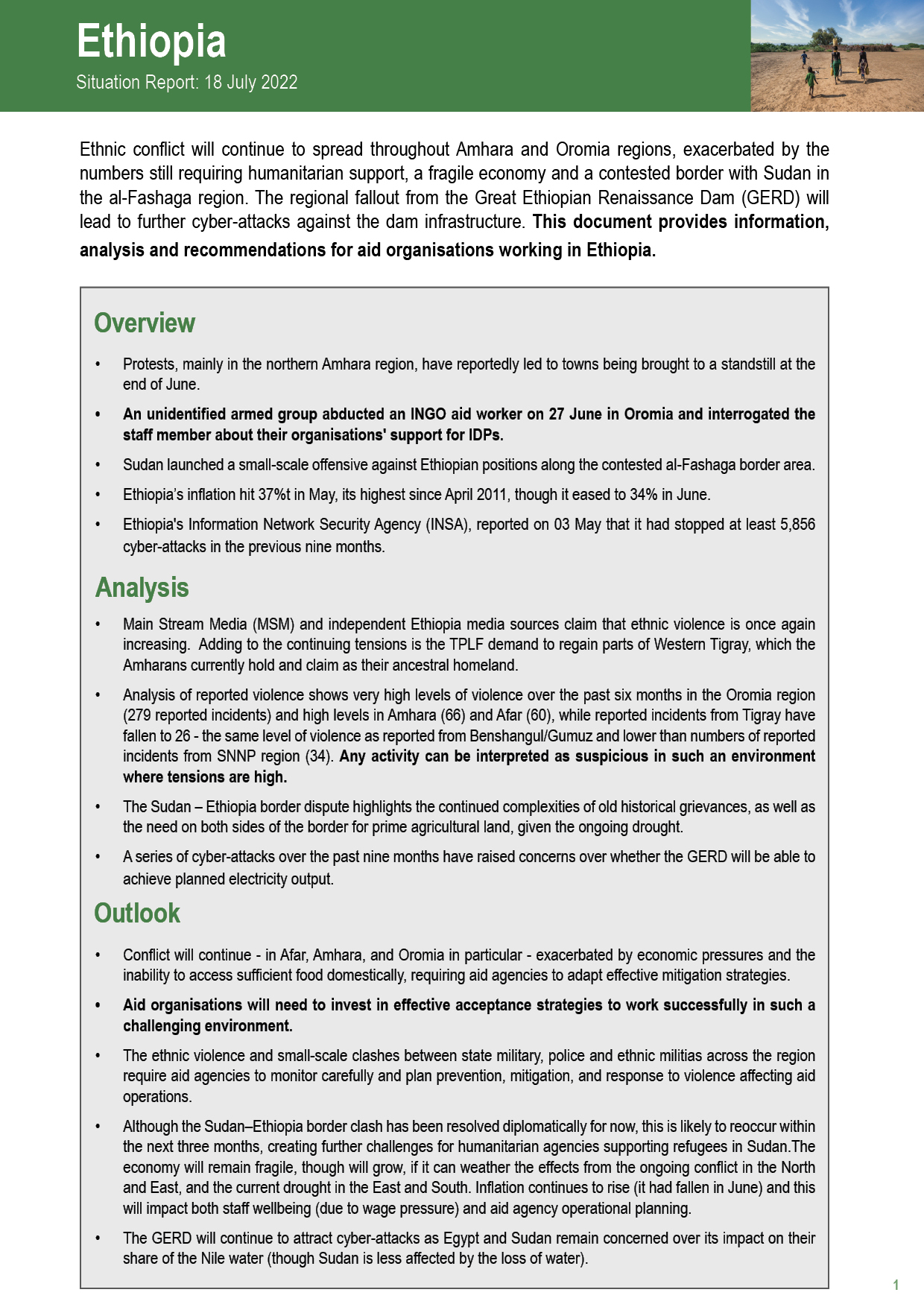
Ethiopia
18 July 2022
Situation Report
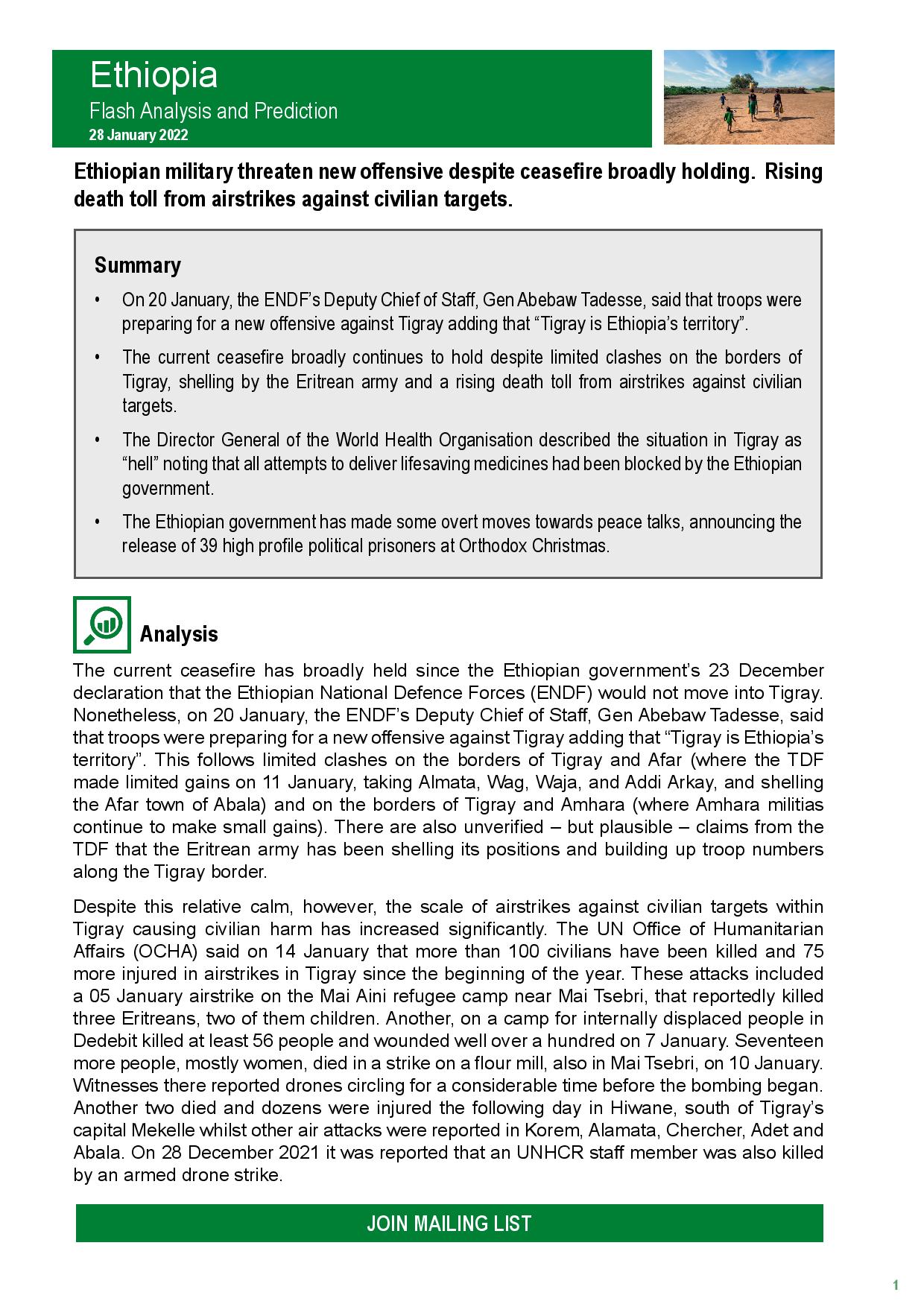
Ethiopia
28 January 2022
Prediction and Mitigations for Aid Agencies
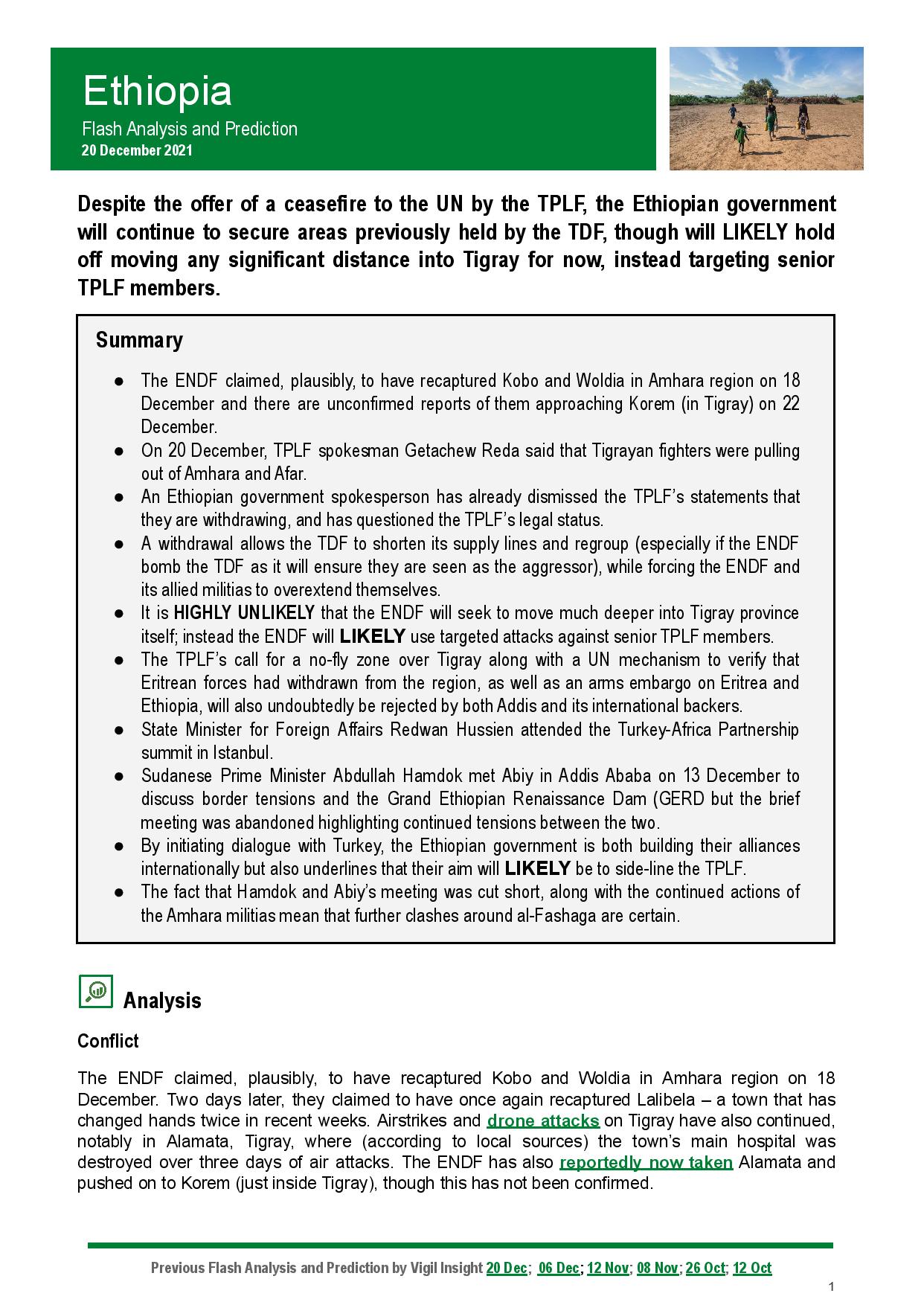
Ethiopia
23 December 2021
Flash Predictions and Mitigation Measures
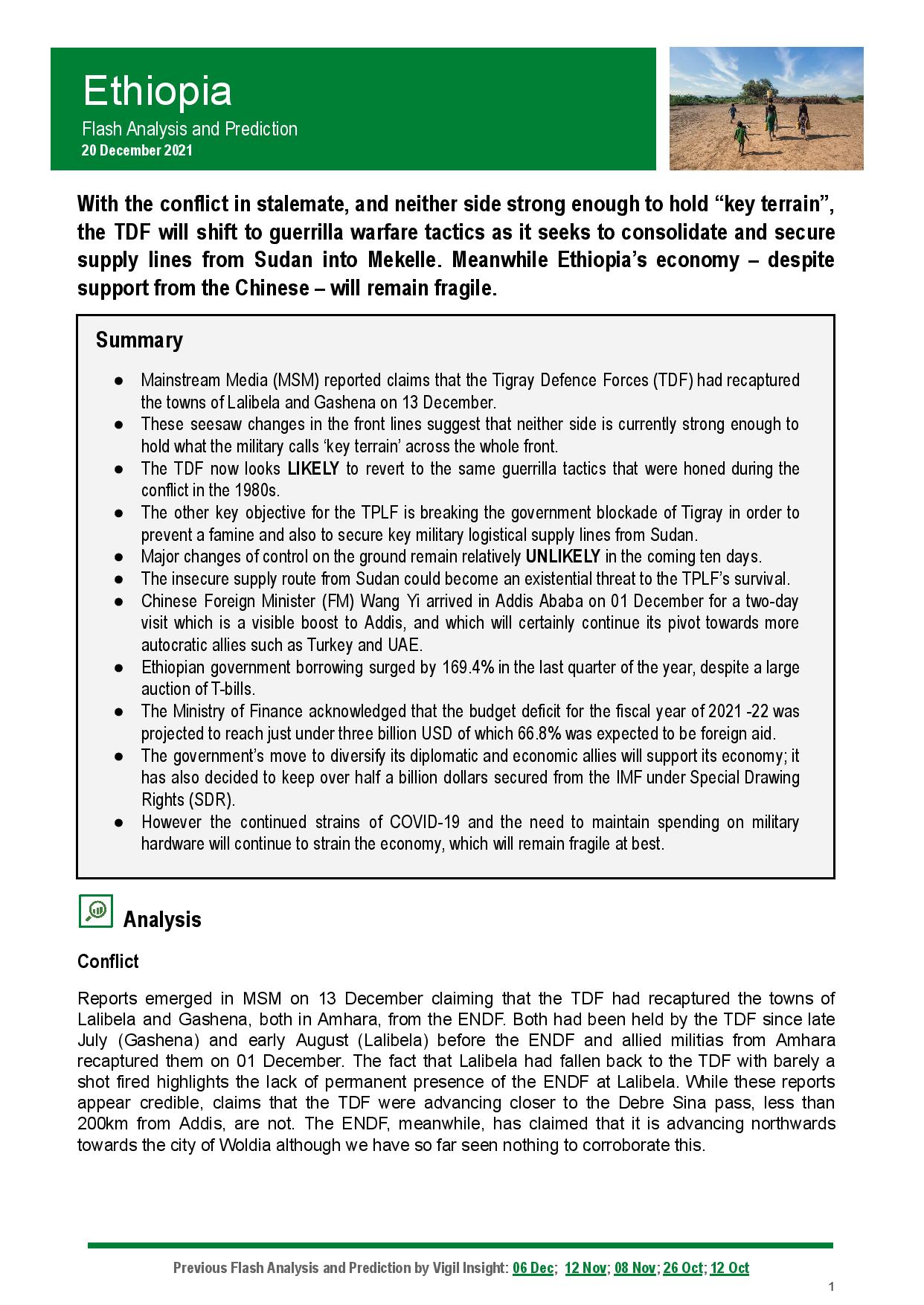
Ethiopia
20 December 2021
Flash Predictions and Mitigation Measures
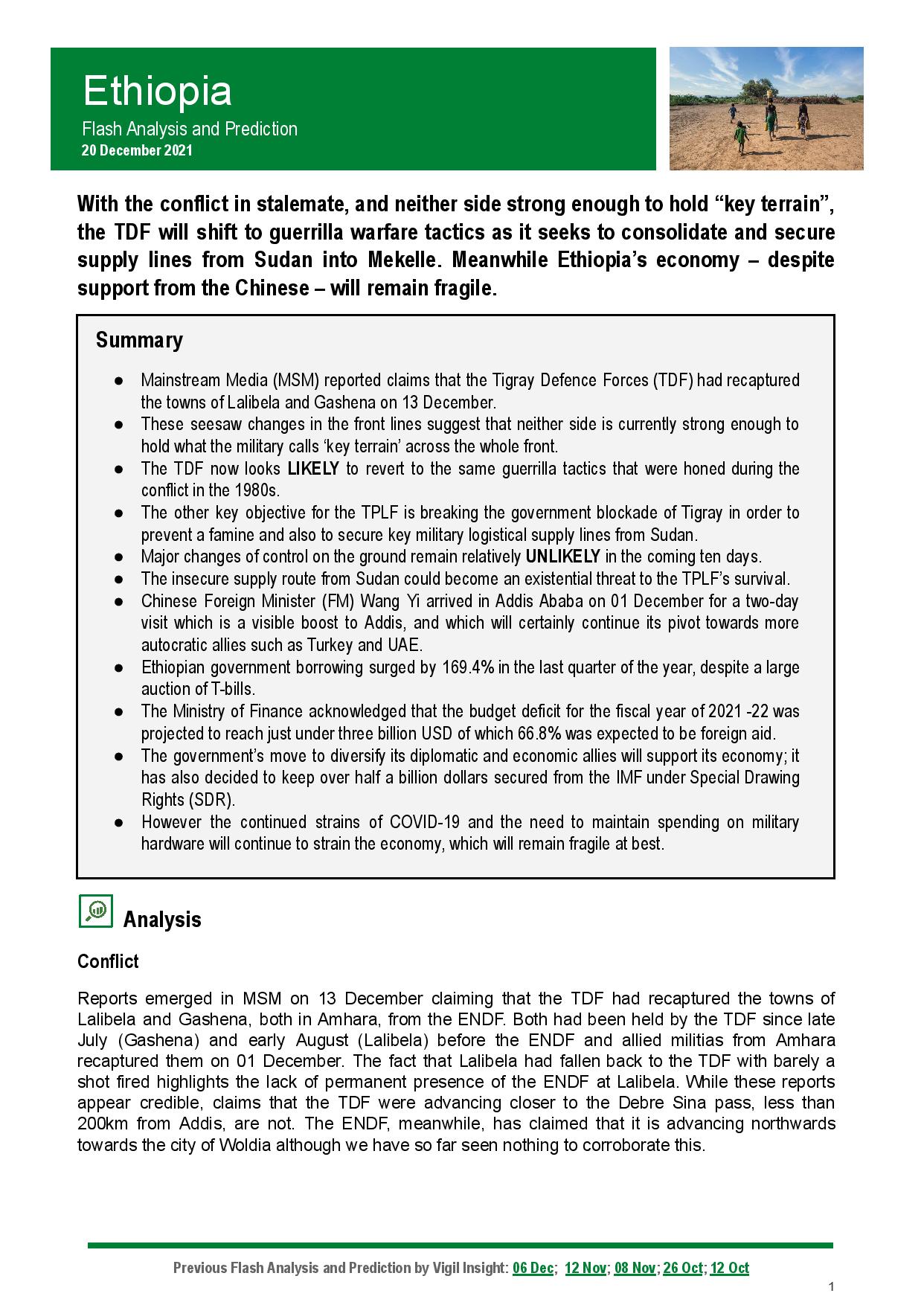
Ethiopia
20 December 2021
Flash Predictions and Mitigation Measures
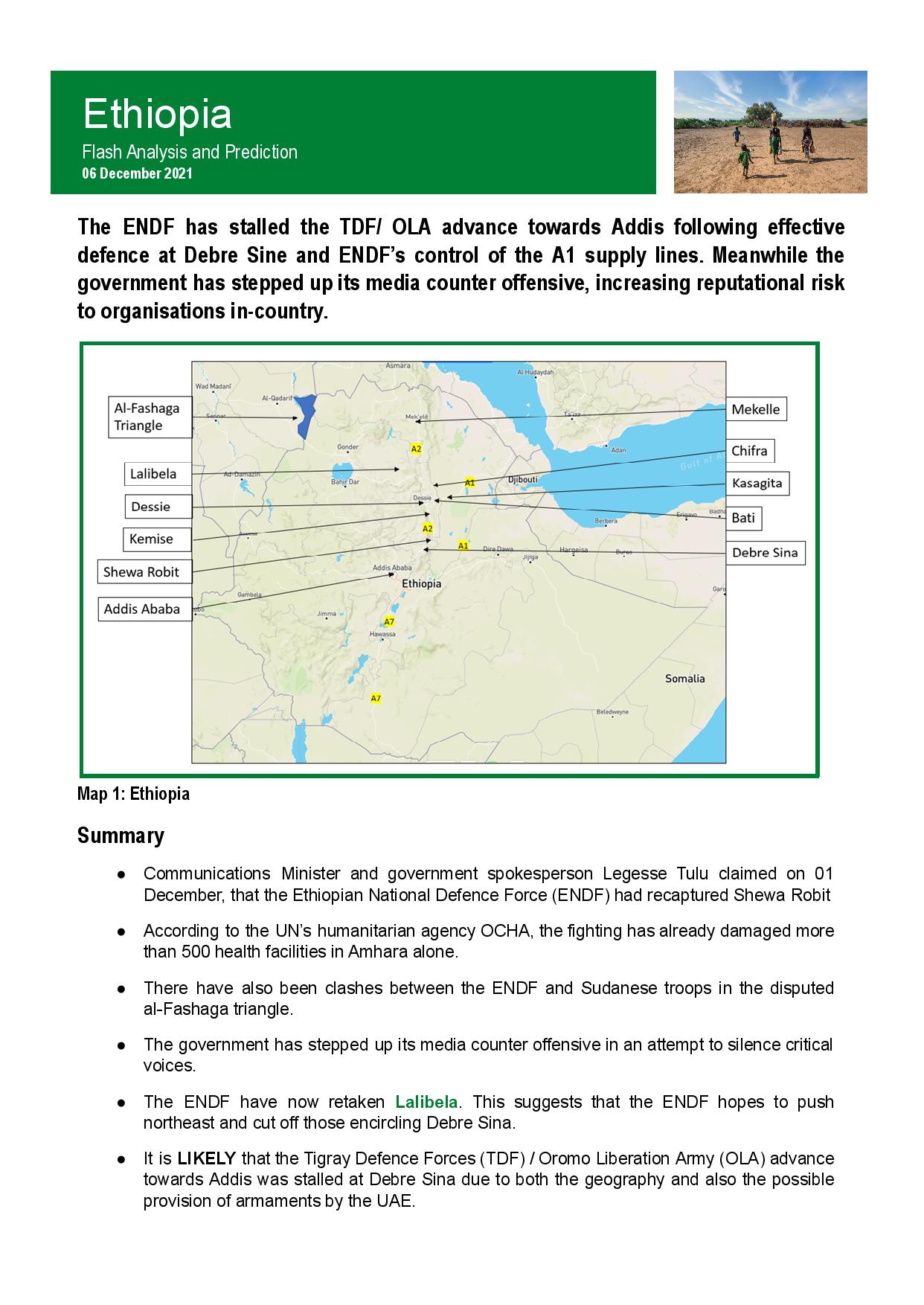
Ethiopia
03 December 2021
Flash Predictions and Mitigation Measures
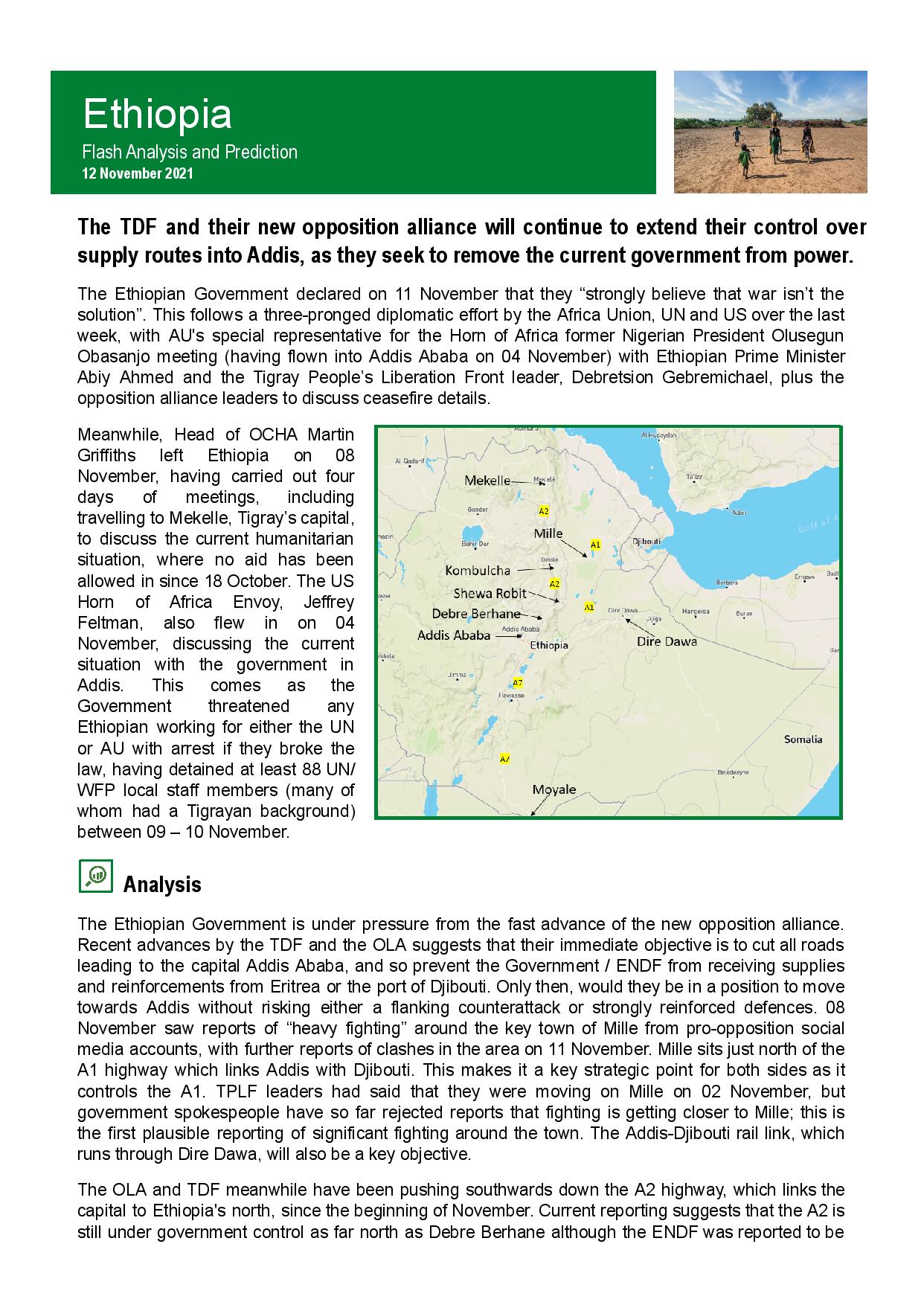
Ethiopia
12 November 2021
Flash Predictions and Mitigation Measures
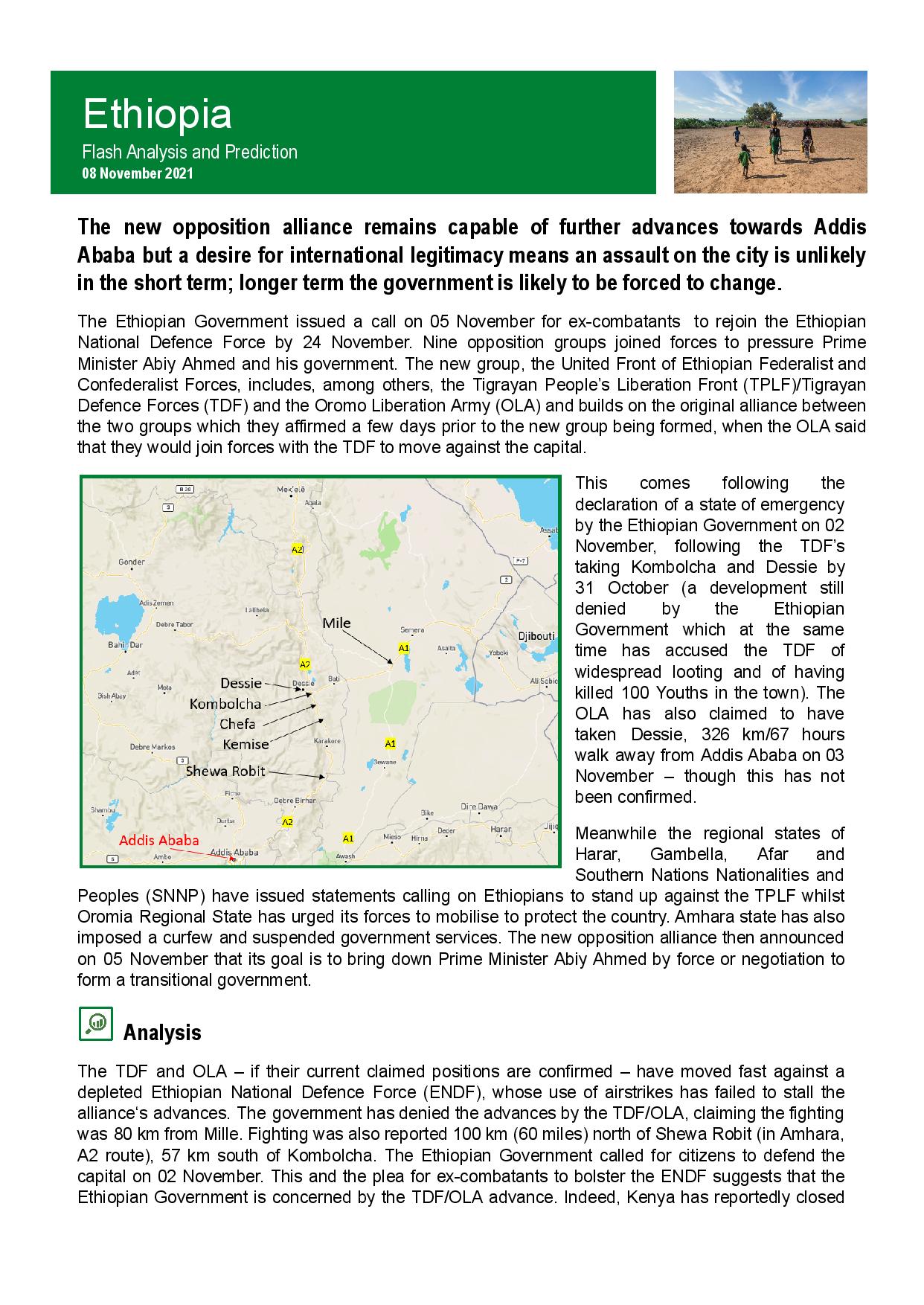
Ethiopia
08 November 2021
Flash Predictions and Mitigations
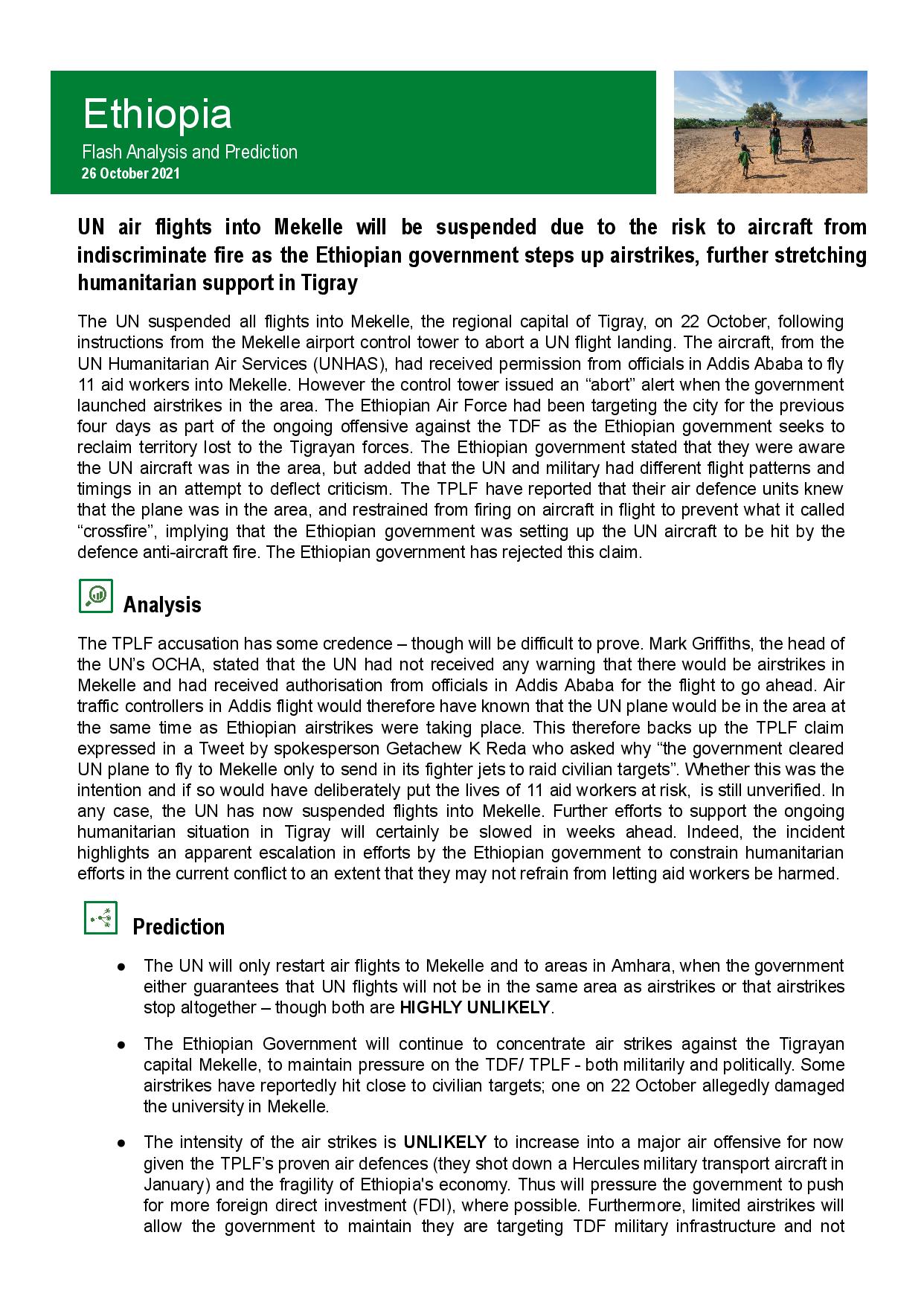
Ethiopia
26 October 2021
Flash Predictions and Mitigations
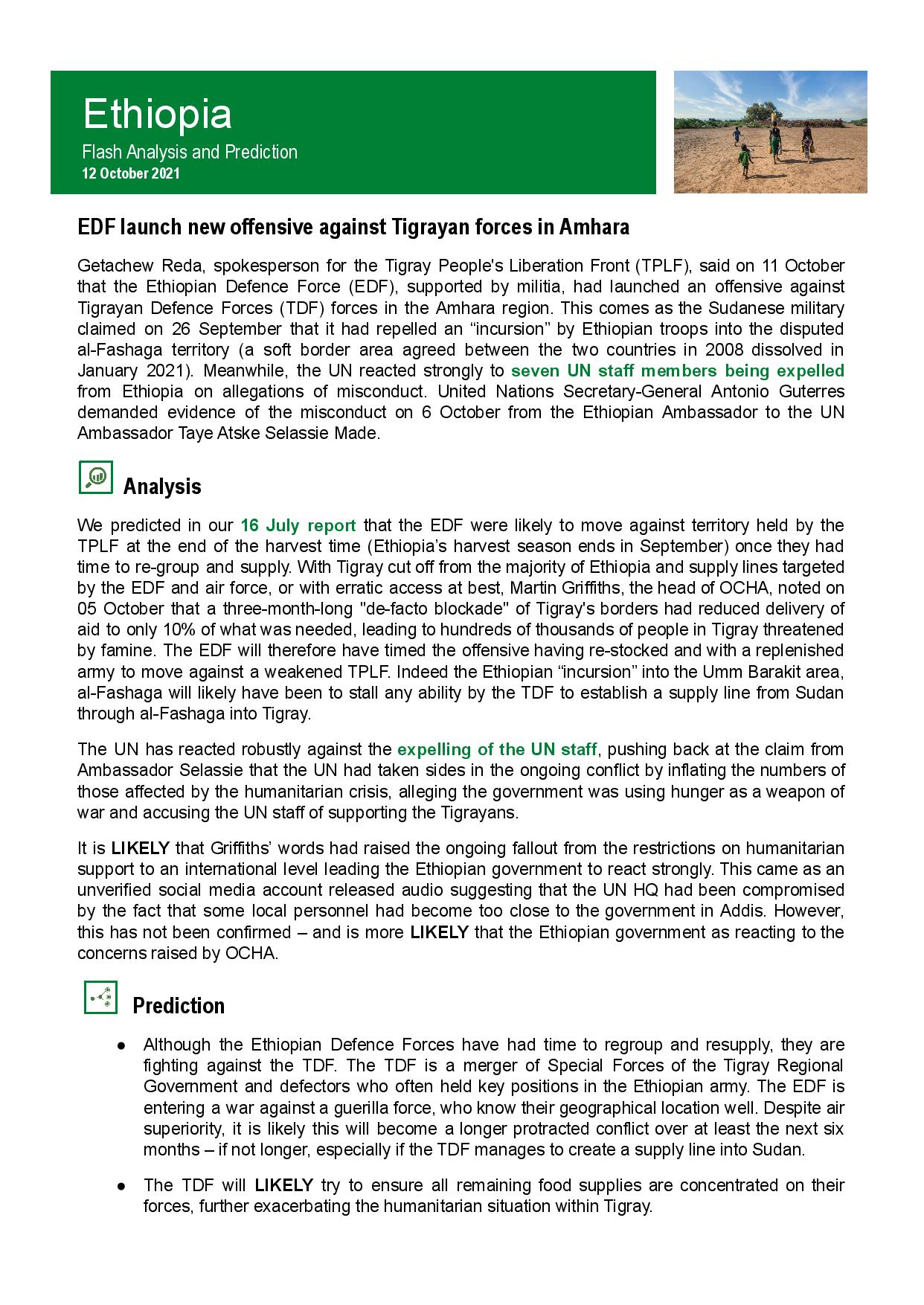
Ethiopia
12 October 2021
Flash Predictions and Mitigations
Health
Health workers have been killed and health facilities looted and destroyed in Tigray, Amhara, and Afar regions. Data
Our Global Interactive Map on Threats and Violence against Health Care provides access to continuously updated information on violence against health care in conflict and related to COVID-19.
Aid in Danger
Humanitarian organisations have been denied or delayed access to many conflict-affected regions and communication blackouts persist in some areas. Ethiopian aid workers have been killed whilst others remain unaccounted for in Tigray region. Data
Sexual Violence
Reports of systematic sexual violence by conflict parties have been reported during the Tigray conflict. Tigrayan women have been raped at gunpoint and forced to have sex with other family members or in exchange for basic commodities. In some cases, their family members were made to watch. In other cases, women were taken to an Eritrean military camp and repeatedly raped by Eritrean soldiers.
Women and girls in refugee camps in the region were particularly targeted. Witnesses to these incidents were threatened and warned against identifying perpetrators or reporting the incidents. Data
Education
Schools and teachers have been harmed amidst violence in Oromio, Benishangul-Gumuz, and Tigray regions. Schools associated with ethnic Amhara residents have been burnt down and ethnic Amhara students attacked by Oromo youth organizations during the June protests in Oromio against the assassination of a prominent Oromo artist.
Teachers have been shot and killed by police and federal forces for allegedly organising demonstrations and schools used by armed militiamen and opposition forces to execute civilians in Oromio and Benishangul-Gumuz regions.
Schools have been damaged by Ethiopian National Defence forces airstrikes and set on fire by conflict parties in Tigray. Data
IDPs and Refugees
In Tigray region humanitarian organisations have been denied or delayed access to many conflict-affected regions. Shimelba and Hitsats refugee camps in the north have deliberately been attacked and refugees abducted and killed. Infrastructures inside the camps has also been burnt down. There have been claims of refugees being forced back into Eritrea by Eritrean forces.
Although there have been temporary and intermittent improvements in humanitarian access, this is insufficient to reach all people in need. IDPs have reportedly starved to death, amid mounting evidence of an impending famine in the region. People inside IDP camps have been detained and physically assaulted by Ethiopian and Eritrean soldiers. Data